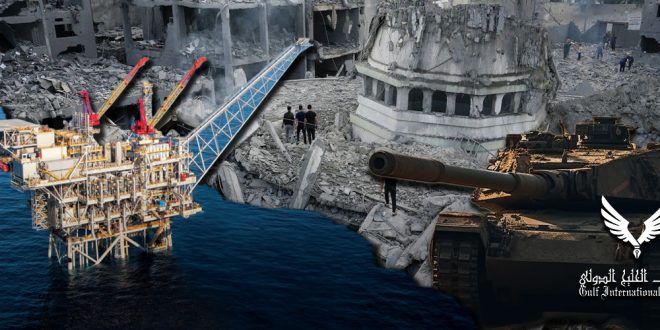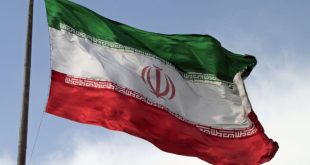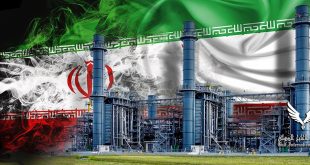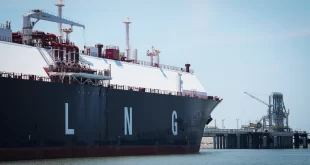The Gaza war has exerted significant pressure not only on the geopolitical equilibrium but have also sent ripples through global trade initiatives, energy markets, particularly affecting investment strategies and operations in the oil and gas sectors within the Mediterranean region.
The ongoing Israel-Gaza war has dramatically increased geopolitical tensions across the Middle East, with far-reaching effects on international relations, the global economy, energy markets, and human rights. The growing economic ties, trade connections, and investments that have begun to knit some Gulf nations closer to Israel are poised to encounter significant challenges in the wake of the ongoing hostilities. This conflict not only disrupts the immediate region but also casts a long shadow on the broader aspirations for de-escalation and economic integration. The Gulf countries, which until October 7 have moved incrementally toward normalization with Israel, have been forced to reconsider the issue. At the same time, Washington, which actively promoted normalizing ties between Riyadh and Tel Aviv before the beginning of the conflict, has sided wholly with Israel, earning it the gratitude of the right-wing government of Prime Minister Benjamin Netanyahu but few plaudits from the Arab world. Immediately after Hamas horrible attack, Israel launched a coordinated air, sea, and land attack against Hamas in Gaza leaving behind more than 10,000 civilian deaths and the systematic destruction of Gaza.
The crisis has had reverberating impacts around the world. It has prompted non-Western world powers, including China and Russia, to align more strongly with the Palestinian cause. This has highlighted the widening gap between these countries and Western powers like the United States, United Kingdom, and France, which have overwhelmingly supported Israel, and exacerbated already-existing geopolitical tensions. A growing number of experts in many countries have voiced concerns about the conflict’s potential to spread and involve additional nations, further destabilizing the region—and perhaps even the world. Within Israel and Gaza, the consequences have been far worse; the fighting has exacerbated the existing dire humanitarian crisis. After Hamas attack in southern Israel, the Netanyahu government announced a “total blockade” of Gaza, cutting off food, water, electricity, medicine, and launched a military operation on the strip.
Shockwaves on Energy Markets
The outbreak of war in Gaza has sharply increased global geopolitical risk. Although much remains uncertain in the early days of the conflict, the International Energy Agency (IEA) has predicted that if the violence continues, oil markets will grow in volatility. While the past month’s events have not affected the physical supply of oil, traders in the energy market are anxiously watching the possibility of a Middle Eastern output interruption. There is precedent for an Israeli-Arab war leading to tremendous shocks in global oil prices; in 1973, after the administration of President Richard Nixon intervened in the Yom Kippur War to assist Israel against Egypt, King Faisal of Saudi Arabia instituted an oil embargo against the United States and other Western nations, leading to massive supply shocks and effectively tripling oil prices overnight. While it seems unlikely that such an embargo could be repeated today, supply cuts due to conflict spillover or logistic problems linked to hostilities could put similar pressure on Washington and its allies to rethink the rejection of ceasefire and near-unconditional support for Tel Aviv.
Economically, the battle may produce havoc, particularly if it further drives up oil prices. The confrontation has already caused Brent crude prices to rise by 7.5%, which is the largest increase since February. Even though neither Israel nor Gaza are significant oil producers, the indirect effects on the oil market still loom; supplies might be disrupted by the ongoing violence, and the possible involvement of external groups like Hezbollah or Iran in the conflict will lead to higher risk premiums in every sector of the oil industry. If Iran is proven to have helped Hamas plan its attacks, sanctions against its oil exports will inevitably be strengthened, further choking off access to Iranian oil and raising prices.
Natural gas prices could also be affected; Israel has stated its intent to close several natural gas fields, and given that the nation produces 1.5% of the world’s natural gas, the restriction may have an effect on markets outside the immediate area. The conflict may also harm Israel’s and the region’s aspirations to develop into a natural gas export powerhouse, if hydrocarbon giants like Chevron that are wary of violence slow their investments in the region.
More broadly, the tensions created by the war may affect recent global trade initiatives that connected the Asia with the Gulf and Europe, leading to lessened trade cooperation, information and technology exchange, and links to financial markets between the East and the West.
Geopolitical Maneuvering and Energy Turbulence
Gulf nations have always carefully balanced their international relations, economic interests, and regional stability when managing their political stances and oil exports during times of turbulence. Over the past half-century, these countries have long responded differently to such crises in terms of politics. For instance, the UAE tends to keep commerce and politics apart; as the first Gulf nation to embrace Israel in the Abraham Accords, it has maintained its business links with Israel while pursuing economic diversification and growth. Saudi Arabia, in contrast, has ceased normalization talks with Israel as a result of the crisis and expressed worries about the broader stability of the Middle East.
The fighting’s consequences on the region’s energy exports are indicative of the degree to which the region’s economies have become interconnected with one another. After the war began, Israel temporarily shut down many important energy facilities; the consequences were soon felt by the UAE, which has a share in Israel’s Tamar gas field. Moreover, as the war progressed, freight charges on 16 major international commerce routes have increased by an average of more than 50%, leading to cascading price increases further downstream.
The Israeli-Turkish relations were also affected. After a decade of antagonistic language and exclusion, Turkey has attempted to mend its relations with neighboring nations, notably Israel. A key element propelling the détente is the discovery of natural gas by Israel in its offshore territories in 2010. Israel is keen to sell its gas to European markets. The most cost-effective route for channeling Israeli gas to Europe passes through Turkey. A collaboration where both nations contribute to diminishing Europe’s reliance on Russian energy could yield significant economic and diplomatic benefits for them. However, these energy plans have been sharply disrupted by the outbreak of war, and the government of President Recep Tayyip Erdogan has felt compelled to backtrack; Ankara recalled its ambassador to Israel.
Iran’s involvement in the Israel-Hamas conflict is apparent in several ways. Through the Revolutionary Guards, Iran has provided Hamas with weapons, finance, training, and accommodation of political figures in Tehran. Questions still circulate surrounding the degree of its involvement in planning, funding, or otherwise orchestrating Hamas’ terror attacks in southern Israel. Hossein Amirabdollahian, the foreign minister of Iran, warned that the conflict’s spread would become inevitable as Israel’s actions continued. Ebrahim Raisi, the president of Iran, reaffirmed his support for Hamas’s attack on Israel. Iran’s engagement in the Israel-Hamas conflict entails aiding Hamas, threatening a wider confrontation if Israel acts in certain ways, and generally reserving the potential to have an impact on the region’s international relations.
Oil market dynamics have been greatly influenced by the Israel-Gaza war, which has raised geopolitical concerns and increased oil prices. During complicated regional dynamics, the Gulf states are doing what they have always done: nimbly balancing their political, economic, and security interests, while seeking the best possible outcome for themselves. Saudi Arabia has stopped the normalization talks with Israel, whilst the UAE keeps trade ties with Israel while keeping politics and business apart. Given the significant rise in oil prices during the crisis, regional and global economists are intently watching any potential worldwide ripple effects. As the crisis continues, and Israel grows closer to a full-bore ground invasion and occupation of Gaza, these challenges will only grow in scope and put more pressure on the energy market.
The views and opinions expressed in this article are those of the authors and do not necessarily reflect the views of Gulf International Forum.





